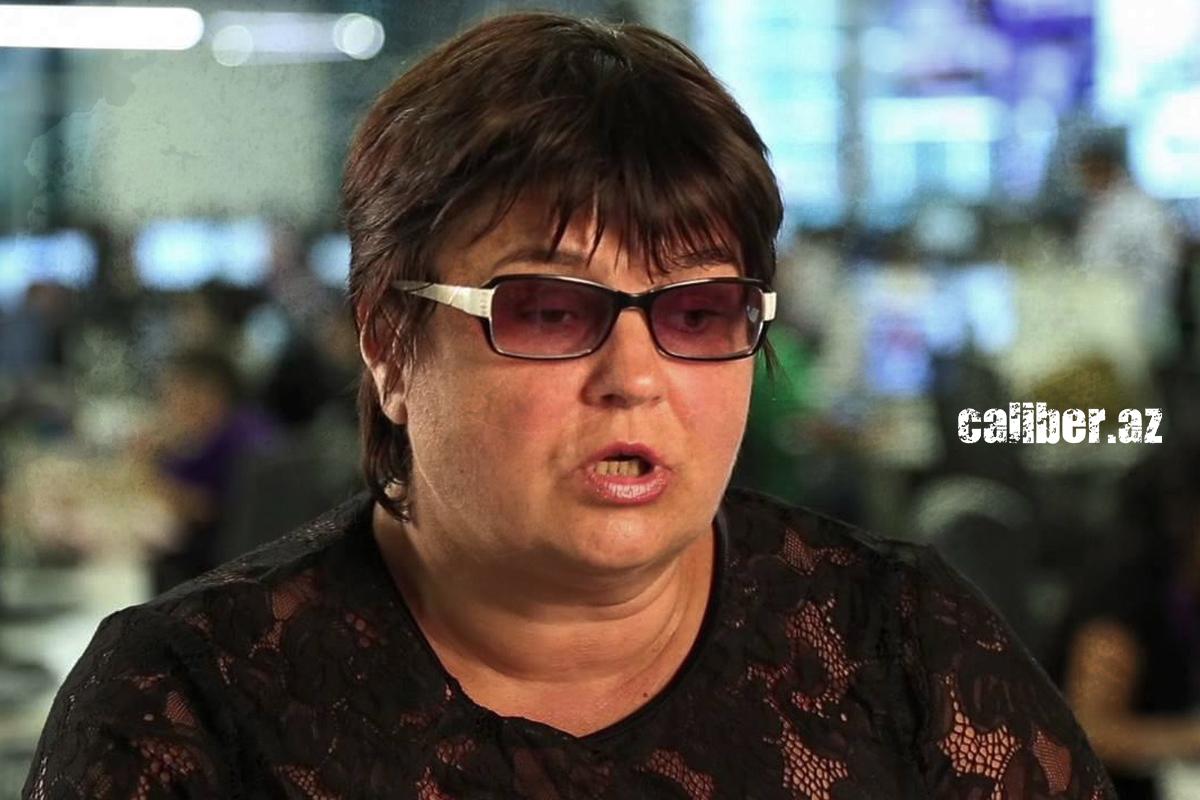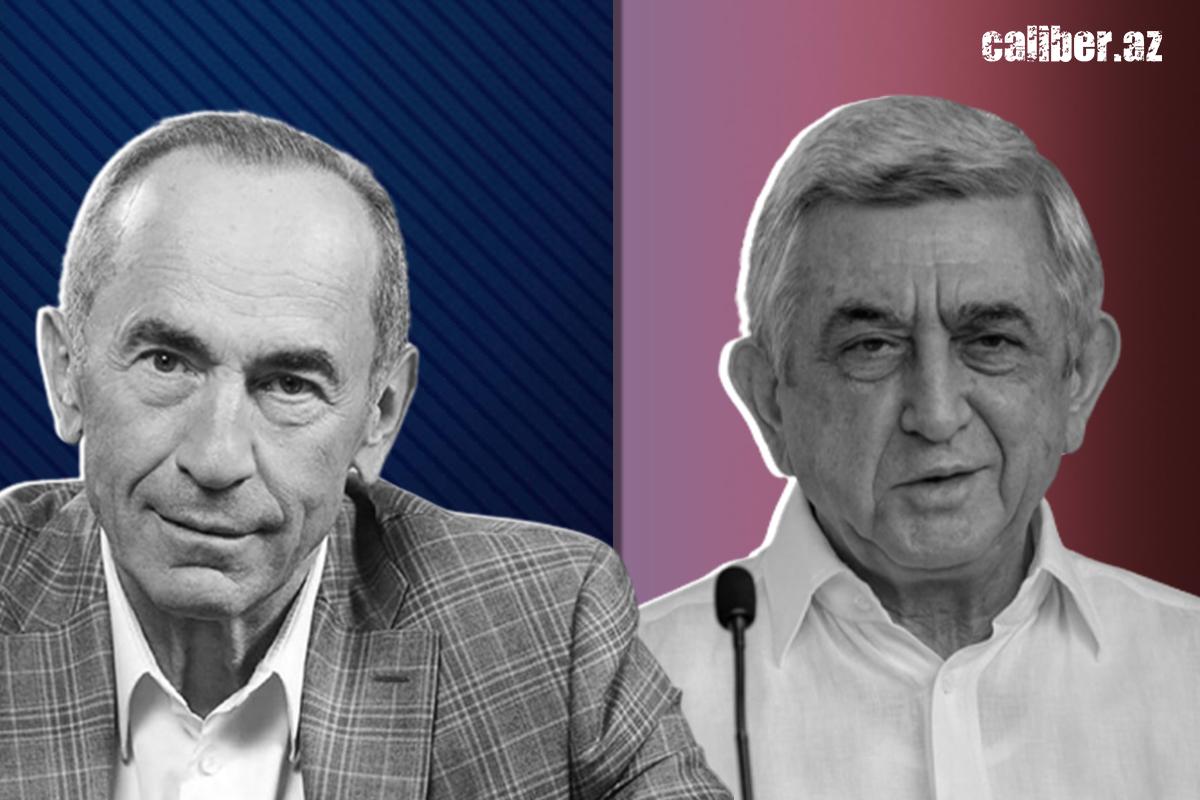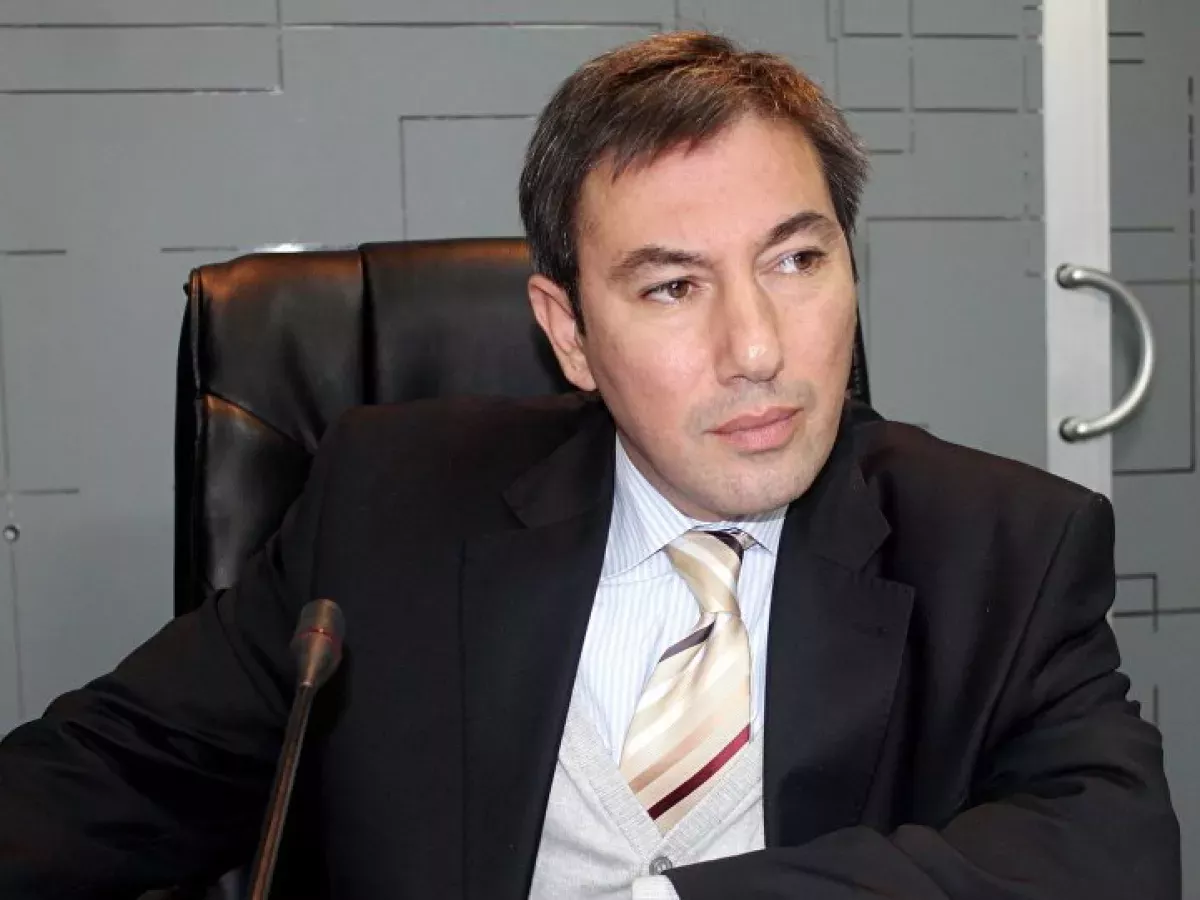Attempted coup in Armenia or purge of pro-Russian forces? Expert opinions on Caliber.Az
The pro-government Armenian outlet Civic.am has published a “plan to overthrow the current government of Armenia,” allegedly obtained from an opposition source. In the section titled “Human Resources,” the document mentions several political and public figures, including former Armenian Presidents Robert Kocharyan and Serzh Sargsyan, recently arrested Russian billionaire Samvel Karapetyan, as well as companies like Gazprom Armenia and the South Caucasus Railway (owned by Russian Railways).
“This process will go down in history as a ‘failed coup by traitors,’” wrote Armenian Prime Minister Nikol Pashinyan on his Facebook page, attaching a screenshot of the Civic article titled “Coup Plan.”
The Prime Minister’s wife, Anna Hakobyan, also commented on the matter, describing the document as a “plan of betrayal” and calling on all those “involved” to repent.
“If anyone recognises themselves in this state treason plan, first of all, my condolences. And secondly, I urge you to repent,” Hakobyan wrote.
Searches have already been conducted in the homes of several opposition figures in Yerevan, during which a certain amount of weapons was reportedly discovered. The well-known Archbishop Bagrat (Galstanyan) has been formally charged under articles related to the preparation of terrorist acts, organisation of mass unrest, and violent seizure of power.
According to Armenia’s Investigative Committee, since November 2024, Galstanyan had been preparing to implement these plans outside the constitutional framework, securing support from members of the “Sacred Struggle” movement and acquiring the necessary resources to carry them out. The investigation claims that weapons, ammunition, action plans, and other materials were discovered during the raids—evidence, they say, that supports the claim of an attempted coup.
However, the Archbishop and his supporters reject these accusations, calling them political persecution and an attempt to suppress national resistance.
So, what exactly is unfolding here? How likely is it that the opposition genuinely devised a concrete plan to overthrow the current government? Can Pashinyan and his administration substantiate the plot’s authenticity—and if they do, what could this mean for former Presidents Kocharyan and Sargsyan?
Caliber.Az spoke with leading experts to shed light on these pressing questions.

Doctor of Political Science, Candidate of Philosophical Sciences, and diplomat Tatyana Poloskova (Russia) began by noting that she does not have access to the intelligence gathered by Armenia’s competent authorities during operational investigative activities. However, she emphasised that even the information publicly available in the media over a prolonged period provides sufficient grounds for certain conclusions.
According to Poloskova, former Armenian presidents Robert Kocharyan and Serzh Sargsyan, the politically driven cleric Bagrat Galstanyan, businessman Samvel Karapetyan, and a number of revanchist Armenian politicians and public figures aligned with them have repeatedly and openly declared their intention to overthrow the current government.
“They not only called for but also actively participated in anti-government actions and incited the population to do the same. In what country would that be met with a pat on the head? This clearly bears the signs of a state crime.
And let’s be honest—the emboldened ‘Artsakh’ martyrs weren’t exactly discreet. The fact that weapons and other evidence of preparations for a coup, including digital files, were discovered during searches of the detainees’ homes and offices indicates that this whole revanchist crowd felt completely immune to consequences.
But the law applies to everyone. If someone decides to go against the state, they must understand the possible consequences—and not complain afterward that they’re being persecuted for their political beliefs, or that the prison food is bad, and so on. In this case, we are dealing with clear violations of the law—under some very serious articles.”
“Whether a plan to overthrow the government was actually developed—that is for the investigation to determine,” said Poloskova. “But I find it hard to believe that when opposition figures were bringing people out into the streets with protest slogans, when Galstanyan, despite his diabetes-swollen legs, was marching across the country with his supporters, and when Karapetyan—on someone’s advice, since it’s unlikely he would have taken such a step on his own—rushed to Yerevan, abandoning his business (which, by the way, is not doing so well), to lead the protesters—that all of this was pure coincidence, completely unrelated.
This is clearly part of a single chain of events. And who forged that chain, and for what purpose, is a matter for the competent authorities. It is the investigation and the court that must establish whether there was such a plan.”
According to her, this group consistently tries to appeal to Russia.
“I would like to point out that Russian presidential press secretary Dmitry Peskov made it absolutely clear that what is happening in Armenia is an internal matter for that republic,” Poloskova stated. “I won’t deny that there are lobbyists for Karapetyan, Galstanyan, and their ilk—including the revanchist leaders of the Dashnaktsutyun party—within the Russian government, parliament, and federal media. Armenia and its global diaspora have always been known for their extensive networks.
But to the Russian lobbyists—why are you defending the interests of those who are calling for illegal actions? Those who reject peaceful relations with their neighbours? Let’s be honest—these well-meaning defenders in Russia certainly won’t be the ones fighting if provocations erupt again on the border with Azerbaijan.
And to those figures in the Russian elite who are rushing to defend the newly jailed individuals, it wouldn’t hurt to listen to the voices of ordinary Russian citizens—especially those from Karapetyan’s own backyard, the Kaluga region,” the diplomat said. “Just check the local websites: news of Karapetyan’s arrest there is met with approving likes and supportive comments.
It was with his direct involvement that the Armenian lobby—backed by certain regional officials, whose names will hopefully also soon be made public—seized businesses from locals, behaving arrogantly and provocatively. The pinnacle of this arrogance came in the early 2000s, when the loudspeaker at Kyiv Railway Station announced: ‘The train to Tashir departs from platform seven’—instead of ‘Moscow–Kaluga.’
I personally remember a case where members of the 'golden youth'—the second-generation Armenian diaspora born and raised in Kaluga—hit a young man at a pedestrian crossing, breaking traffic laws and leaving him with serious injuries. The culprits were released by police after a brief questioning. It took the intervention of competent authorities to quell public outrage. There were many such incidents—which is why, personally, I feel no sympathy for Mr. Karapetyan.
Let’s not idealise him or the paths he took to achieve success in business. So—let justice prevail!”

As for the involvement of Kocharyan and Sargsyan in preparing a coup—that is something the investigation must prove, she added.
“But even six months ago, I heard from Armenian circles in Moscow that early elections might be held in Armenia in the summer of 2025. Could it be that these ‘elections’ were expected to follow a coup?
The Armenian ‘union of the sword and plough’ chose the coup scenario because its masterminds were not confident in winning through honest means. Any coup sparked by the streets inevitably brings violence and suffering to the people. Instead of rebuilding the economy or improving ties with neighbours, the Galstanyans, Karapetyans, and others are pushing the population towards violent actions. But violence begets violence—and ultimately harms the interests of the Armenian people themselves.
Pashinyan certainly has his flaws—he can be inconsistent and often swayed by outside opinion. But in this case, his actions are entirely lawful and appropriate. One can only wish him firmness—and the judiciary, justice,” Poloskova concluded.

Ilgar Velizade, an expert in international affairs and head of the "South Caucasus" Political Scientists’ Club, noted that this is not the first time Prime Minister Pashinyan has claimed that there are attempts to overthrow him—specifically by representatives of the Karabakh clan, Armenia’s former political leadership, allegedly with support from Russia.
“Here, Pashinyan is trying to kill two birds with one stone,” the political analyst explained. “On the one hand, he aims to show that he is still committed to an anti-Russian course—one that Moscow is allegedly forcing him to take. This comes amid a cautious thaw in relations between the two countries observed in recent months. In the West, Pashinyan is already being seen as someone trying to reconcile with Moscow. But Pashinyan wants to make it clear that he is not seeking any rapprochement with Russia. Why? Because he sees Russia as an existential adversary.
On the other hand, he is clearly trying to purge Armenia’s political landscape ahead of the upcoming elections. He is working to isolate all unwanted opponents from active political life. And what better justification than to claim there is a coup attempt—thus giving his actions a legal framework,” Velizade said.
At the same time, Velizadeh added, one must admit that “there’s no smoke without fire.”
“It is quite possible that the individuals Pashinyan refers to may indeed have sought backing for their actions from elements within the Russian leadership. We know—or at least there are reports—that Kocharyan travelled to Moscow a few weeks ago and may have met with Russian officials. But again, this is all information circulating in the Armenian press, and how accurate or substantiated it is remains uncertain.
In any case, it’s clear that Pashinyan is currently focused on achieving his primary objective: to eliminate genuine opposition, clear the political field, secure re-election, and continue the reforms he has initiated—including completing the constitutional reform process. This constitutional revision is central to Pashinyan’s agenda.
And he is not doing this, as the opposition claims, to satisfy Baku’s demands, but to strengthen his own political position, establish what he calls the ‘Fourth Republic,’ and essentially restructure Armenia’s political landscape to fit the needs of what he terms the ‘real Armenia’—thus extending his own political survival.
Naturally, along the way, other issues will also be addressed, such as advancing dialogue with Ankara and Baku. But how effective Pashinyan’s actions will be, and how they will resonate on the foreign policy front, is something only the near future will reveal,” Velizade concluded.








